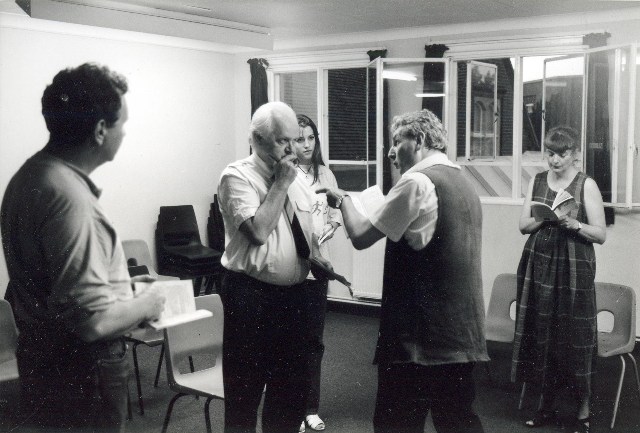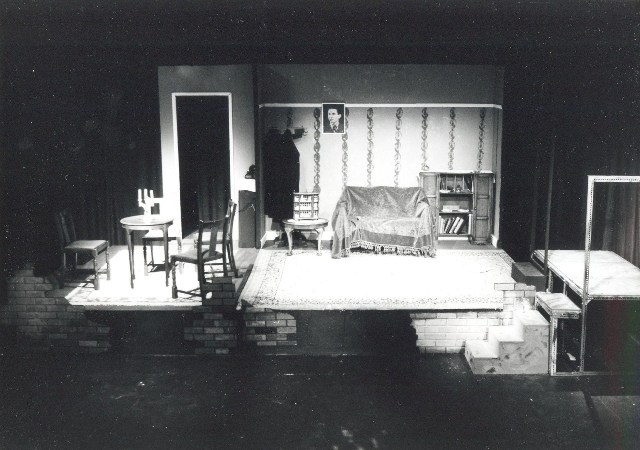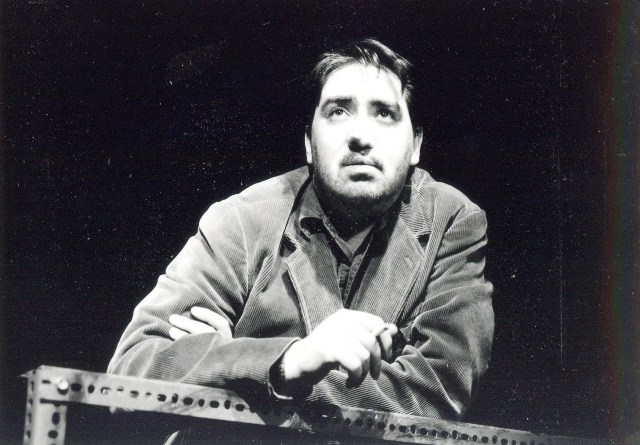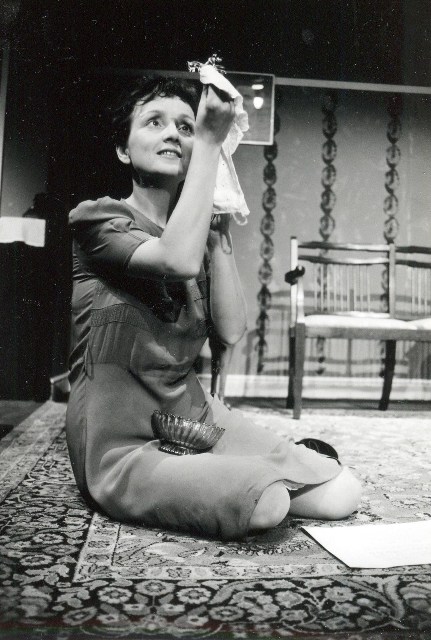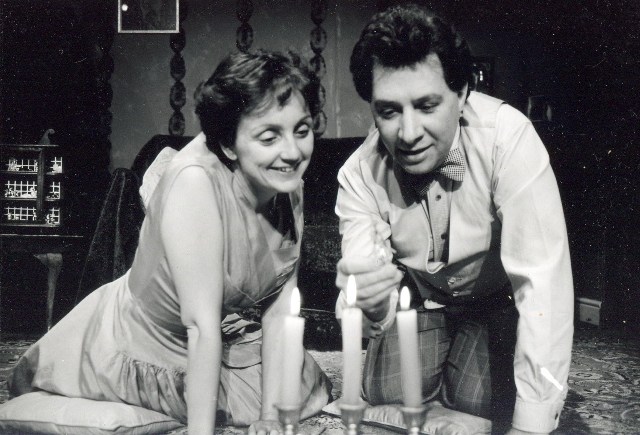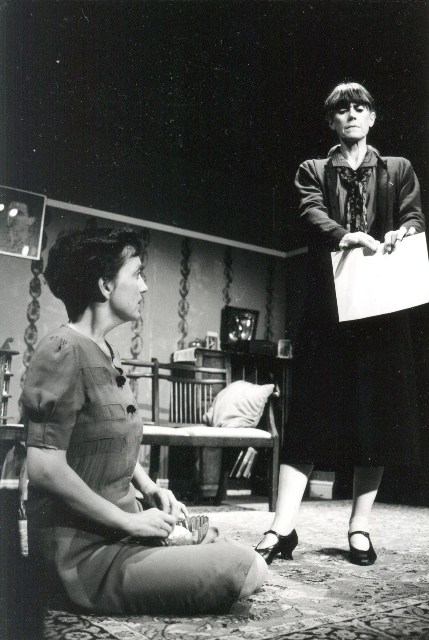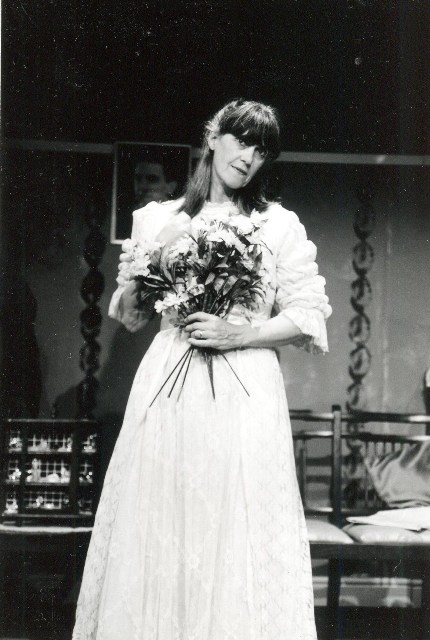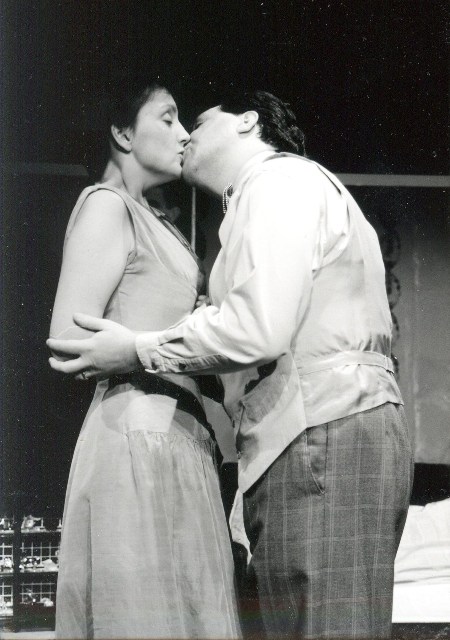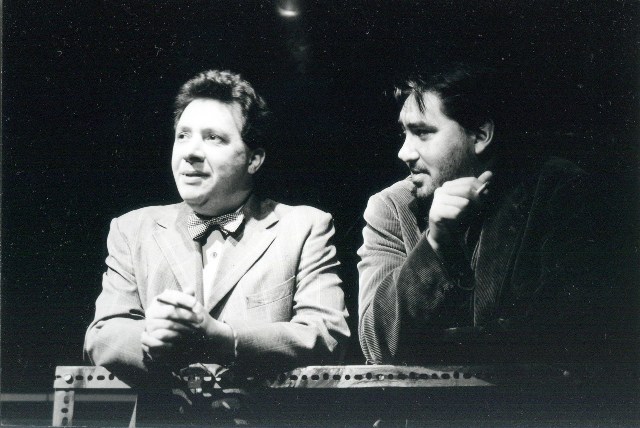The Glass Menagerie
Written by Tennessee Williams
Thursday 11th July to Saturday 13th July and Tuesday 16th July to Saturday 20th July 1996
Directed by Andrew Caple
Desperate to find a husband for her shy daughter, Amanda comforts herself with recollections of an earlier, more gracious life. But when the long-awaited Gentleman Caller does arrive... Set in St. Louis during the Depression, this semi-autobiographical play is one of Tennessee Williams' most poetic, powerful and moving.
previous
production
next
production
AuthorTennessee Williams
Thomas Lanier Williams (1911 - 1983)
Tennessee Williams was an American playwright who received many of the top theatrical awards for his works of drama. Born in Columbus, Mississippi he moved to New Orleans in 1939 and changed his name to "Tennessee", the state of his father's birth. He attended the University of Missouri then transferred to Washington University in St. Louis for a year, and finally earned a degree in 1938 from the University of Iowa.
He moved to New Orleans in 1939 where he wrote 'The Glass Menagerie' which was first staged in Chicago in 1944 to great acclaim, winning a New York Drama Critics' Circle Award. He won the Pulitzer Prize for 'A Streetcar Named Desire' in 1948 and again for 'Cat on a Hot Tin Roof' in 1955. In addition, The Glass Menagerie (1945) and The Night of the Iguana (1961) received New York Drama Critics' Circle Awards. His 1952 play 'The Rose Tattoo' received the Tony Award for best play. In 1980 he was presented with the Presidential Medal of Freedom by President Jimmy Carter.
He encountered many personal difficulties in his life, such as the mental illness and institutionalisation of his sister, the difficulties of being gay in an unaccepting pre- and post-war American society, his infidelities (which led to the breakdown of many of his relationships) and his dependence on drugs and alcohol, all of which contributed to his own mental health problems and he suffered a breakdown in 1969. It is almost certain that alcohol and drugs contributed to his death when he choked on a bottle cap in a New York hotel room.
Set in 1937, 'The Glass Menagerie' was Williams' first successful play. The original short story 'Portrait of A Girl In Glass' was written in 1941 and adapted to become the screenplay 'The Gentleman Caller' in 1943. Its final incarnation as the play 'The Glass Menagerie' premiered in Chicago in 1944 and was made into a film in 1950. Like many of Williams' plays, it is semi-autobiographical in nature, the Wingfield family being a very thinly veiled representation of his own.
Set in and around the family house, the play is introduced by the narrator, Tom. His story is based on his recollection of his sad and desperate mother Amanda and his crippled sister Laura. Tom supports both of them and at his mother's insistence, one day brings home a colleague as suitor for Laura. The interaction between the gentleman caller and his sister is awkward and in the process of their stilted courtship one of Laura's treasured glass animals is broken. When Amanda finds out that Jim is in fact already engaged to be married, she breaks down and all her desperation and resentment floods out and the family is changed forever. At the end of the play, Jim's guilt at the outcome is almost palpable and is a touching metaphor for the guilt Tennessee Williams felt about his own disabled sister Rose.
top of page

This play was staged at Havant Arts Centre, East Street Havant - Bench Theatre's home since 1977.
| Tom Wingfield | Damon Wakelin |
| Amanda Wingfield | Rosemary Sawyer |
| Laura Wingfield | Alyse Ashton |
| The Gentleman Caller | John O'Hanlon |
Crew
| Director | Andrew Caple |
| Stage Manager | Ali Bullivant |
| Lighting | Stuart Monk |
| Sound | Kathy O'Hanlon |
| Designer | Andrew Caple |
top of page
The NewsMike Allen
Moving and painfully real
Action is minimal, conflict more implicit than explicit, argument cursory. Yet Bench Theatre's production is indescribably moving. Tennessee Williams uses the play to sublimate his own anguish at his desertion of his handicapped sister to escape their domineering mother, and here guilt glistens in every bead of sweat on Damon Wakelin's brow.
All four amateur actors show in their unforced gestures that they are at ease on stage - remarkable in such exposed roles. Their characters are painfully real under Andrew Caple's direction
Alyse Ashton plays sister Laura's shy despair with a wonderfully gentle expressiveness in the eyes - touching beyond belief in the moment of desertion. Rosemary Sawyer, as the mother, speaks with a rising cadence that leads equally effectively into scolding or gushing mode. And John O'Hanlon, the 'gentleman caller', brings an air of hard-nosed realism into a household so claustrophobic it is coffin-like.
The News, Friday 12th July 1996
top of page
Production Photographs

